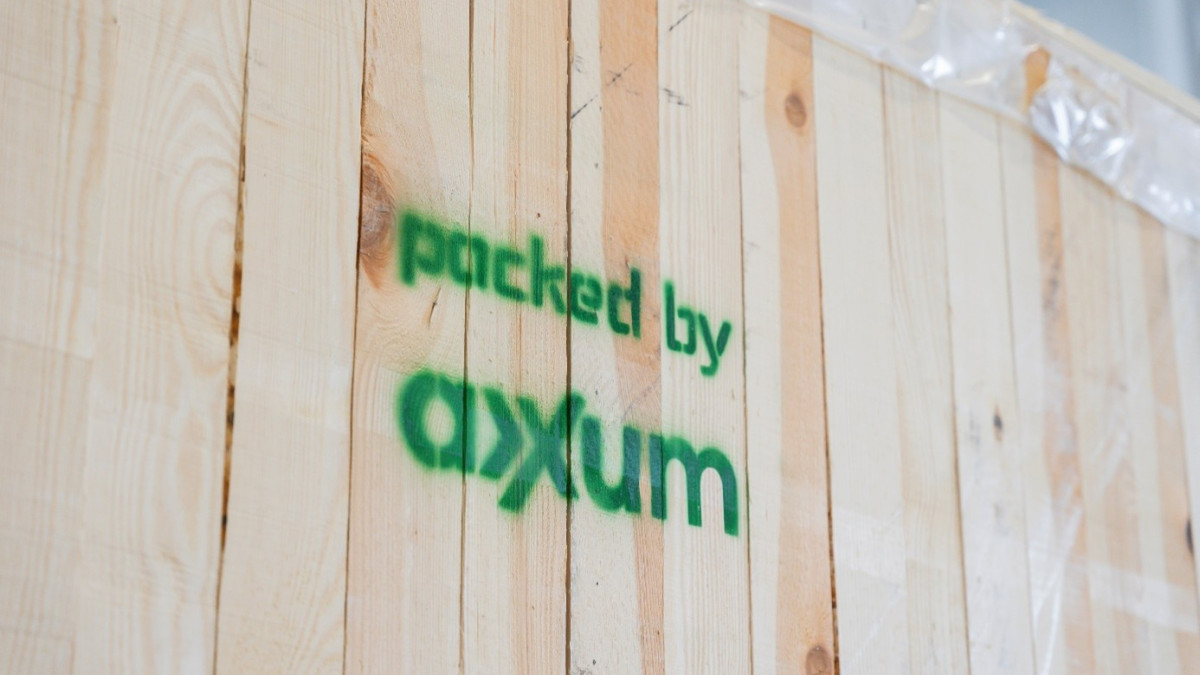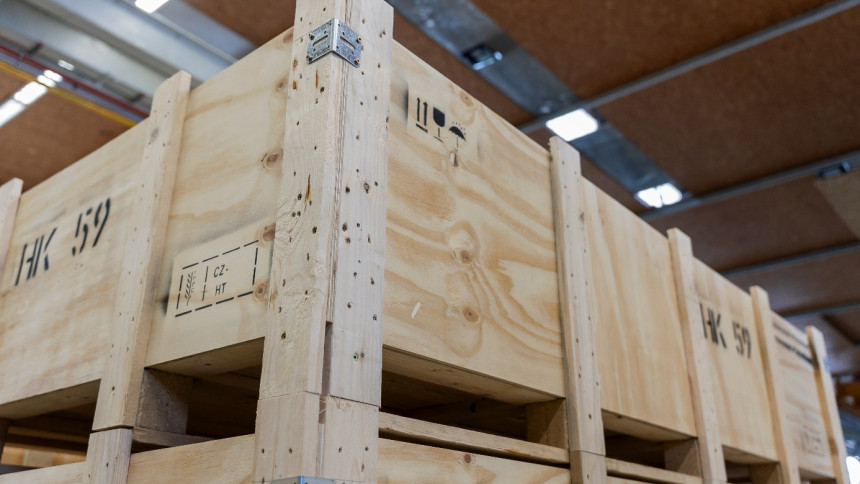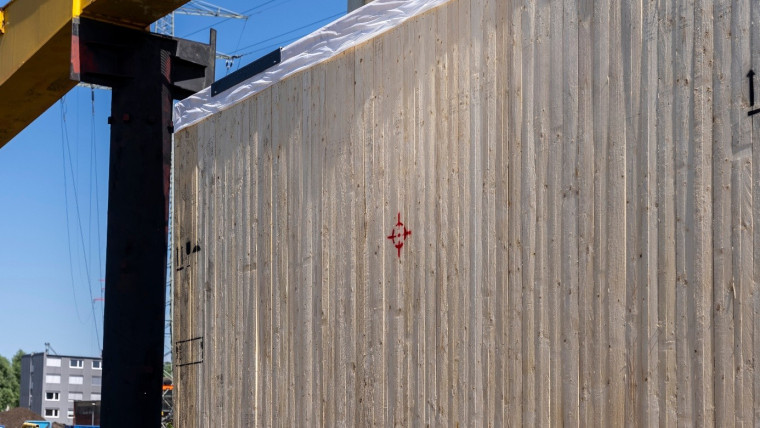28.07.2025

Latest news
Export packaging in accordance with ISPM 15: mandatory or optional for global supply chains?
Export packaging according to ISPM 15
Mandatory or optional for global supply chains?
Anyone who exports goods in wooden crates or on pallets will sooner or later come across the abbreviation ISPM 15. But what does it actually mean - and when is packaging in accordance with ISPM 15 actually mandatory? For companies that ship internationally, knowledge of this regulation is not a detail, but a crucial part of the supply chain.
What is ISPM 15 and why was the standard introduced?
ISPM 15 stands for "International Standards for Phytosanitary Measures No. 15". The standard was developed by the International Plant Protection Convention (IPPC). The aim is to prevent the spread of pests via packaging wood in international trade.
Wood that enters the global flow of goods untreated can contain pests that cause major damage in other countries and endanger forests, plantations and agricultural land.
ISPM 15 ensures that packaging wood is treated before export so that it no longer contains any living pests.

Which packaging must be treated in accordance with ISPM 15?
The regulation applies to almost all packaging made of solid wood that is used in the international movement of goods. This includes wooden crates, pallets, crates, wedges and supporting timbers that have direct contact with the wooden packaging.
Products made of processed wood, such as chipboard, OSB boards or plywood, are not affected. These materials are considered pest-free due to their industrial production.
How does the treatment of wooden packaging according to ISPM 15 work?
In order to meet the requirements of ISPM 15, the packaging wood must be thermally treated before use. In practice, heat treatment (HT) is used almost exclusively. This involves heating the wood to at least 56 degrees Celsius in special drying chambers - for at least 30 minutes in the core.
After treatment, the wood is given a visible stamp that is permanently affixed to the material. This ISPM 15 stamp indicates that the wood comes from a certified company, has been treated correctly and meets all specifications. Without this proof, there may be problems at customs or the delivery may even be rejected.

For which countries is ISPM 15 mandatory?
The ISPM 15 standard is widely used internationally. More than 180 countries worldwide recognize it or even make it mandatory. These include major export markets such as the USA, China, Australia, Canada, Brazil and many more.
If the corresponding stamp is missing, the goods cannot be unloaded at the port of destination. In some cases, it is sent back or has to be extensively reprocessed - which costs time, money and trust.
Anyone who exports regularly should therefore find out exactly whether the destination country requires ISPM 15. Many companies therefore rely on compliant packaging solutions from the outset in order to keep supply chains stable.
Export packaging in practice: how AXXUM ensures compliance
AXXUM manufactures all export packaging in accordance with ISPM 15 - provided it is made of solid wood. Packaging production is subject to strict quality controls. The wood comes from verified sources and is thermally treated before it enters the packaging process
After treatment, all packaging elements are stamped and documented accordingly. Traceability of the treatment is guaranteed at all times - an important point in the event of any queries in the destination country.
Thanks to this standard process, AXXUM ensures the customs compliance and reliability of the packaging, even for sensitive supply chains or time-critical exports.
ISPM 15 - mandatory or optional for your company?
Compliance with ISPM 15 is not always required by law. However, anyone who regularly ships goods to countries outside the EU cannot avoid this requirement. The ISPM 15 stamp is also often a must for project business involving the shipment of expensive machines or systems - if only for reasons of safety and planning.
In addition, certified packaging helps to avoid unnecessary delays at customs. Once you have opted for ISPM 15-compliant packaging, you also create long-term trust with international business partners.
Conclusion: on the safe side with certified export packaging
ISPM 15 is more than just a technical regulation - it is a building block for functioning global supply chains. Companies that want to export their products reliably and without incidents should address the requirements at an early stage. Properly handled and labeled packaging not only protects forests, but also projects, budgets and customer relationships.
Frequently asked questions about ISPM 15
You might also be interested in
About the AXXUM Group
With more than 60 locations in seven European countries and 1,300 employees, we offer integrated, high-quality solutions that meet all requirements relating to B2B packaging, contract logistics and the transportation of industrial goods.
AXXUM GroupCareer
Career entry? Change of perspective? Career advancement? No matter what drives you, we would like to offer you something: a stable, future-oriented and motivating working environment, smart benefits and attractive social services.
CareerServices
Our services in the field of packaging and logistics solutions: Packaging, Contract Logistics and Innovation.
Services

